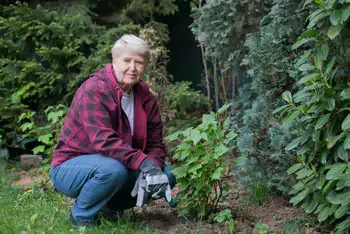Don't Ignore Pain from Gardening

Most people do not head for the garden planning to finish the day with aches and pains or a serious injury. Tending flowers, trimming bushes, planting a new tree, and even mowing the lawn can be considered a way to relax and enjoy the outdoors. For the gardener, nothing is more satisfying than stepping back and surveying the beauty of the land.
Unfortunately, gardening and working in the yard can lead to all kinds of injuries, such as pulled and torn muscles, back injuries, tendonitis in the elbow, thumb pain, and carpel tunnel syndrome.
Too often, once we have suffered some kind of injury, we ignore it, believing it will go away. If it is serious enough, it won’t. It will only get worse without treatment.
It is important to remember that if you have pain after gardening, and if it lasts for longer than a few days, you should call the doctor. The best thing to do is to take preventive action before working in your garden.
Prevention is the Best Medicine
- Plan ahead. If there are several tasks you need to complete in the garden, make a plan that includes how long you will work on each task and how often you will rest. Don’t try and get everything finished in one go.
- Stretch before you begin to work. Stretching makes your body more flexible and decreases the risk of injury.
- Invest in the latest ergonomic gardening tools. Ergonomic tools are lighter, designed to support your hands and upper extremities to prevent injury.
- Know your body. When you feel tired, stop and rest. Your body is telling you that you are beginning to do too much and that you can be at risk for injury.
- Be mindful of repetitive motions. If you need to do a repetitive task such as clipping the dead roses or pulling weeds, take breaks often and be mindful of how long you are doing it. Stop one task and do another that uses different muscles. Stop and stretch the muscles you are using.
- Drink plenty of water. You can become dehydrated without realizing it. Make sure you are drinking plenty of fresh water, especially as you exercise. Dehydration can contribute to muscle pain.
- Avoid the heat of the day. We have high humidity in Delaware. High heat and humidity together can put you at risk for heat exhaustion or worse*.
- Relax at the end of the day. Once you are finished working in the garden, go inside and enjoy a hot shower or bath. Remember to stretch again.
